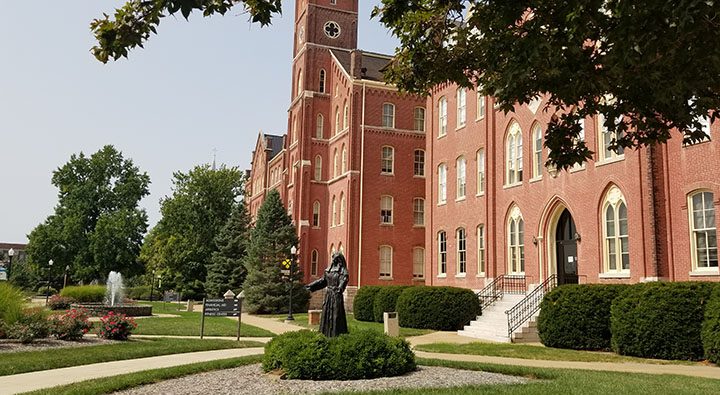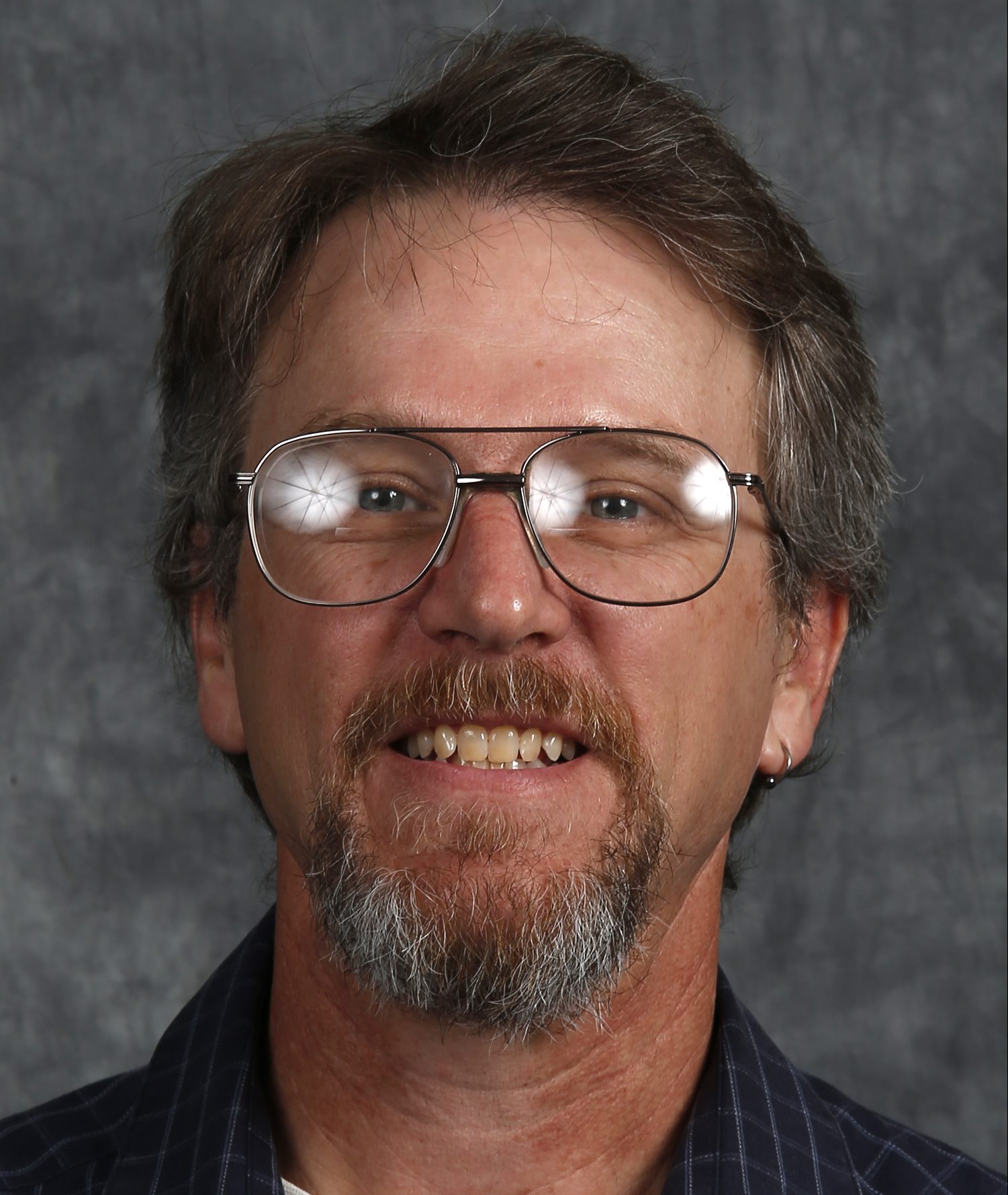
QU Biology Professor Published in Research Journal

Joseph R. Coelho, Ph.D., professor of biology at Quincy University, recently co-authored a paper entitled “Nesting Ecology of the Pacific Cicada Killer, Sphecius convallis Patton, in the Sonoran Desert”.
The paper examines factors affecting the ecology of a large population of Pacific cicada killers occupying a field of mine tailings in Ruby, Ariz. This paper is the latest in a series originating from Coelho’s sabbatical in southern Arizona in 2009.
He and two collaborators, Chuck Holliday, Ph.D., Northern Kentucky University and Jon Hastings, Ph.D., Lafayette College, Easton Pa., found varying factors affecting the ecology of the large population of Pacific cicada killers (Sphecius convallis) in Ruby. Data collected suggests that the habitat suitability was a large factor in this robust population. Although excavations revealed that the number of burrows and cells could easily maintain the population size, the lack of cicadas probably resulted instead in a population crash the following season.
“This paper is bittersweet because it is the last one authored with my collaborators, who have both retired,” Coelho said. “It is probably the last paper I will write on cicada killers, which have been my favorite research animal. As my own retirement looms on the horizon, I am happy with what I have accomplished in research. It’s been a fun ride.”
The Journal of Hymenoptera Research publishes papers of high scientific quality reporting comprehensive research on all aspects of Hymenoptera, including biology, behavior, ecology, systematics, taxonomy, genetics, and morphology. Of the approximately 50 papers Coelho has published, this will be the fourth for this particular journal.
Coelho obtained a bachelor’s of science degree in biology from the University of California at Riverside and a doctorate in environmental, population and organismic biology from the University of Colorado. He came to Quincy University in 2004. His research primarily focuses on the physiological ecology of insects, solitary wasps in particular. He also studies cultural entomology, such as insects in music. He teaches all of the field courses, including Ecology, Environmental Science, Entomology, Plant Field Biology and Vertebrate Field Biology.
Founded in 1860 by Franciscan friars, Quincy University is celebrating 160 years as a small Catholic university emphasizing the sciences, liberal arts and the professions. Quincy University offers undergraduate, graduate and adult education programs integrating practical experience and Franciscan values. Faculty and advisors work with students to design customized success plans to help them graduate on time, find their passion and prepare them for life. QU is a member of NCAA Division II for intercollegiate athletics. For more information, please visit www.quincy.edu or contact the Office of Community Relations at (217) 228-5275 or communityrelations@quincy.edu. Quincy University. Success by Design.
